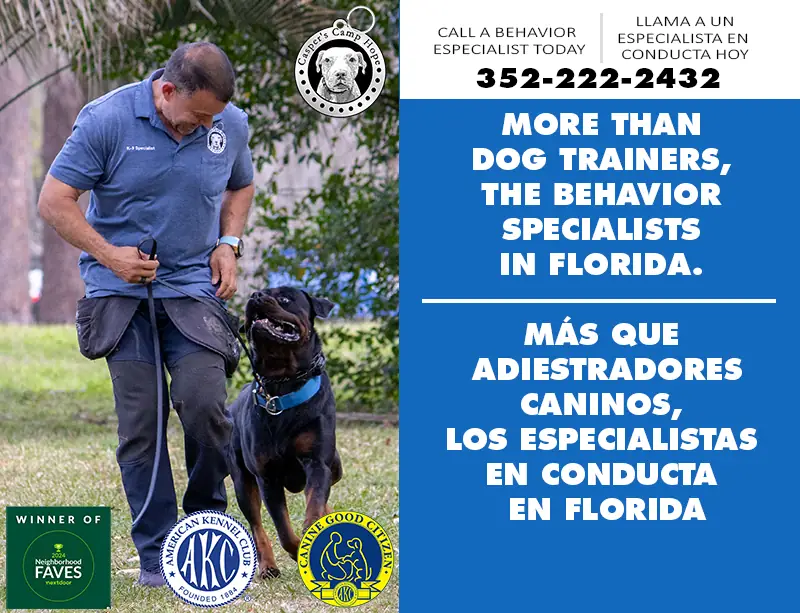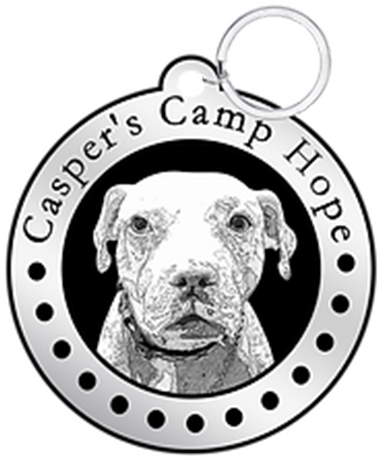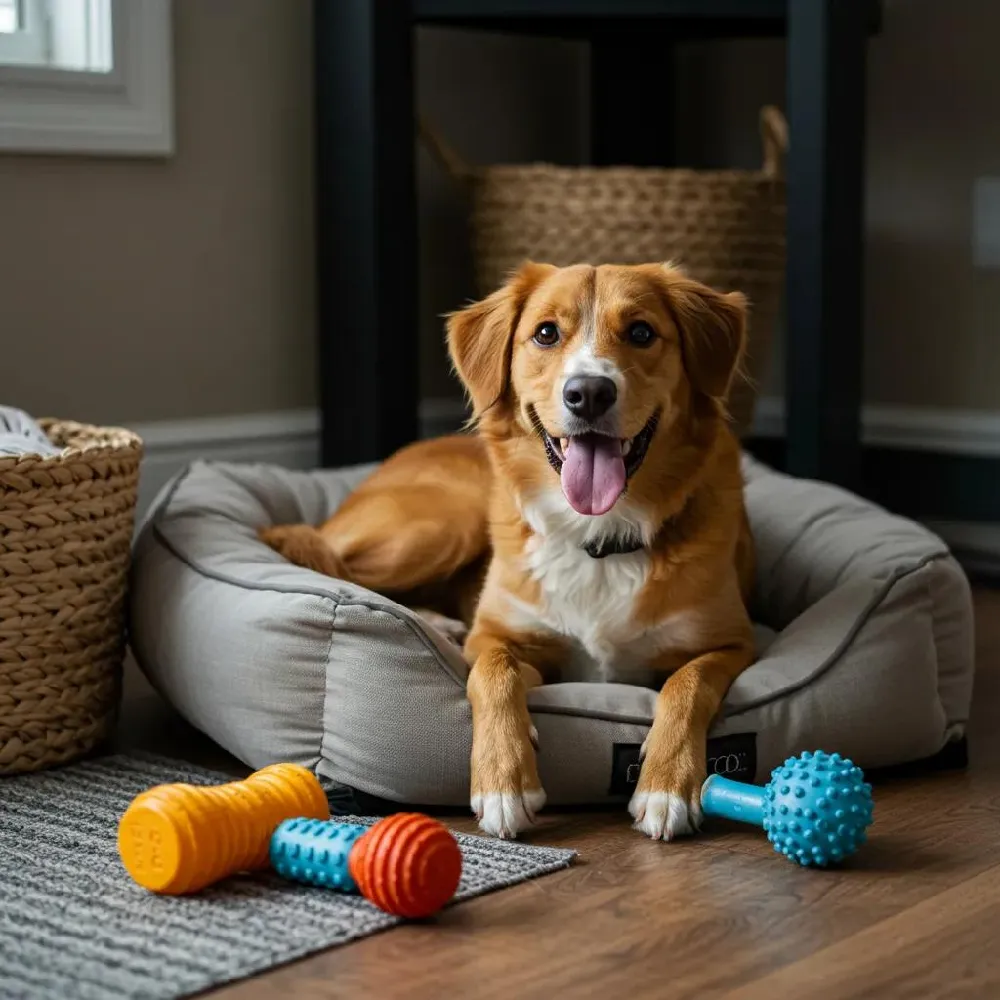
Are traditional kennels adding unnecessary stress to your dog and leaving you uneasy about their well-being? Home dog boarding advantages extend far beyond simple lodging by offering a familiar environment, individualized supervision, health protection, and peace of mind for pet parents. This article explores unexpected benefits you might not know—covering key contrasts with kennels, enhanced comfort and security features, personalized care advantages, routine preservation and anxiety reduction, surprising perks for owners, how Casper’s Camp Hope replicates home-like care in a professional setting, and a comparative view against conventional kennels and pet sitting services. Read on to discover how in-home dog boarding elevates your dog’s welfare and outperforms traditional alternatives.
What Are the Key Benefits of In-Home Dog Boarding Compared to Kennels?
In-home dog boarding places a trained caregiver and your dog together in a domestic residence, preserving familiar routines and surroundings. This setup reduces fear and agitation by avoiding cages, loud group areas, and constant shifts in social groupings common to kennel facilities. Personalized attention supports emotional stability, while one-on-one supervision ensures timely feeding, exercise, and medication adherence. Dogs experience fewer behavior issues, maintain healthy sleep cycles, and avoid exposure to kennel cough and communal stressors. Below is a direct comparison of core attributes between in-home and kennel boarding.
| Setting Type | Attention Level | Stress Impact | Health Exposure |
|---|---|---|---|
| In-Home Dog Boarding | One-on-one, customized supervision | Significantly reduced anxiety in a known space | Minimal risk of kennel-borne illnesses |
| Kennel Boarding | Shared playgroups, scheduled check-ins | Elevated stress due to unfamiliar noises | Higher chance of exposure to kennel cough and stress |
This table illustrates how in-home dog boarding delivers superior emotional support and health safety, setting the foundation for deeper examinations of each benefit.
How Does Home Dog Boarding Reduce Stress and Anxiety in Dogs?
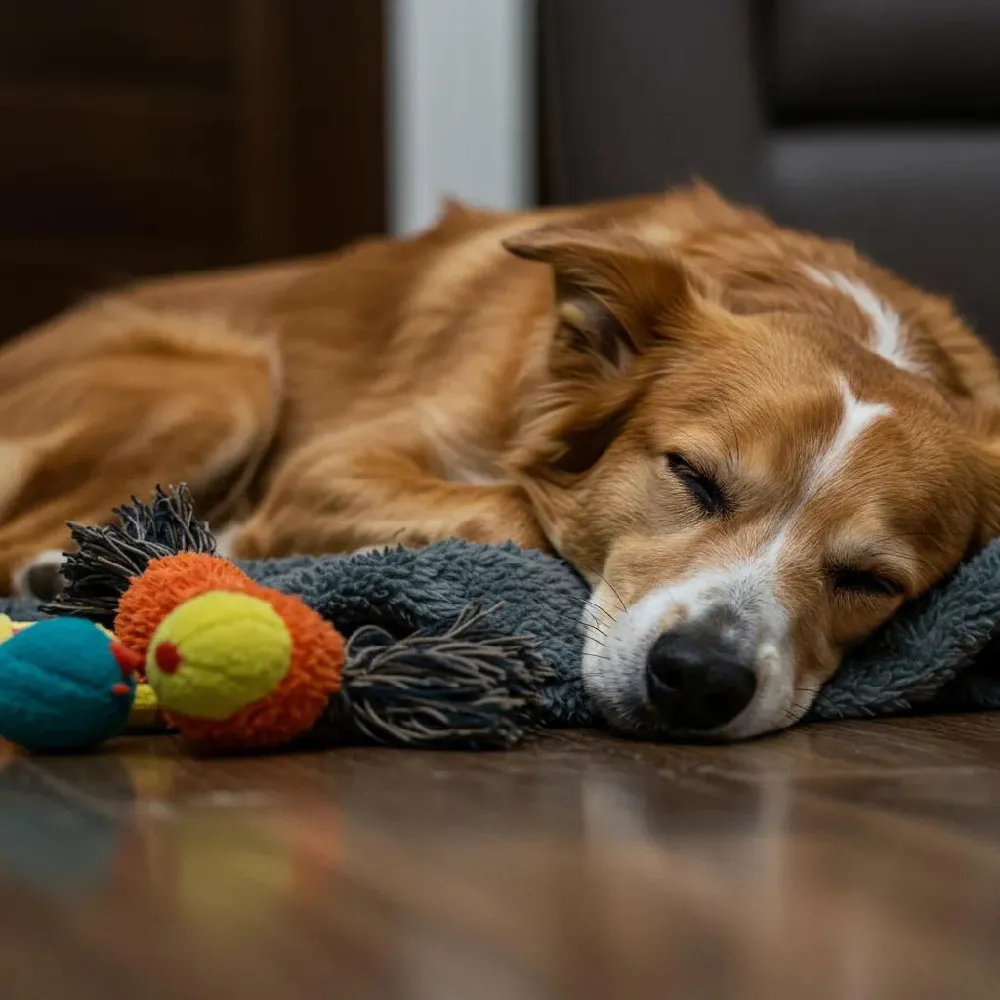
Home dog boarding reduces stress by replicating the pet’s everyday environment, allowing dogs to rest where scents, sounds, and routines remain constant. Familiar household noises and known aromas help regulate cortisol levels and maintain calm behavior. One-on-one attention prevents isolation anxiety often triggered by cage confinement and loud group settings. For example, a dog sleeping on a bed similar to its own at home consistently displays lower heart rates and fewer pacing episodes. This emotional stability creates an ideal platform for personalized enrichment and training activities that will be discussed next.
Reducing Stress in Boarding Dogs with Enrichment Toys
AbstractStress is something felt by all creatures in many different situations. For dogs, stress can come about by being in an unknown environment, near unfamiliar people and other dogs. When dogs are stressed, they exhibit behaviors that can fall into four different categories: posture, vocalizations, activity, and aggression. This research was looking to see if the use of enrichment toys, meant to stimulate a dog’s mind, could be a useful tool in combating behaviors caused by stress. By allowing dogs at a boarding center to play with either enrichment or non-enrichment toys, and observing their behavior, then comparing the frequency of the behavior using a t-test, it could be determined if enrichment toys have an effect on behavioral signs of stress. 22 dogs were separated into two groups and allowed to play with toys from their assigned groups. After being returned to the kennels, dogs were obse
What Personalized Care Can Dogs Receive in a Home-Based Setting?
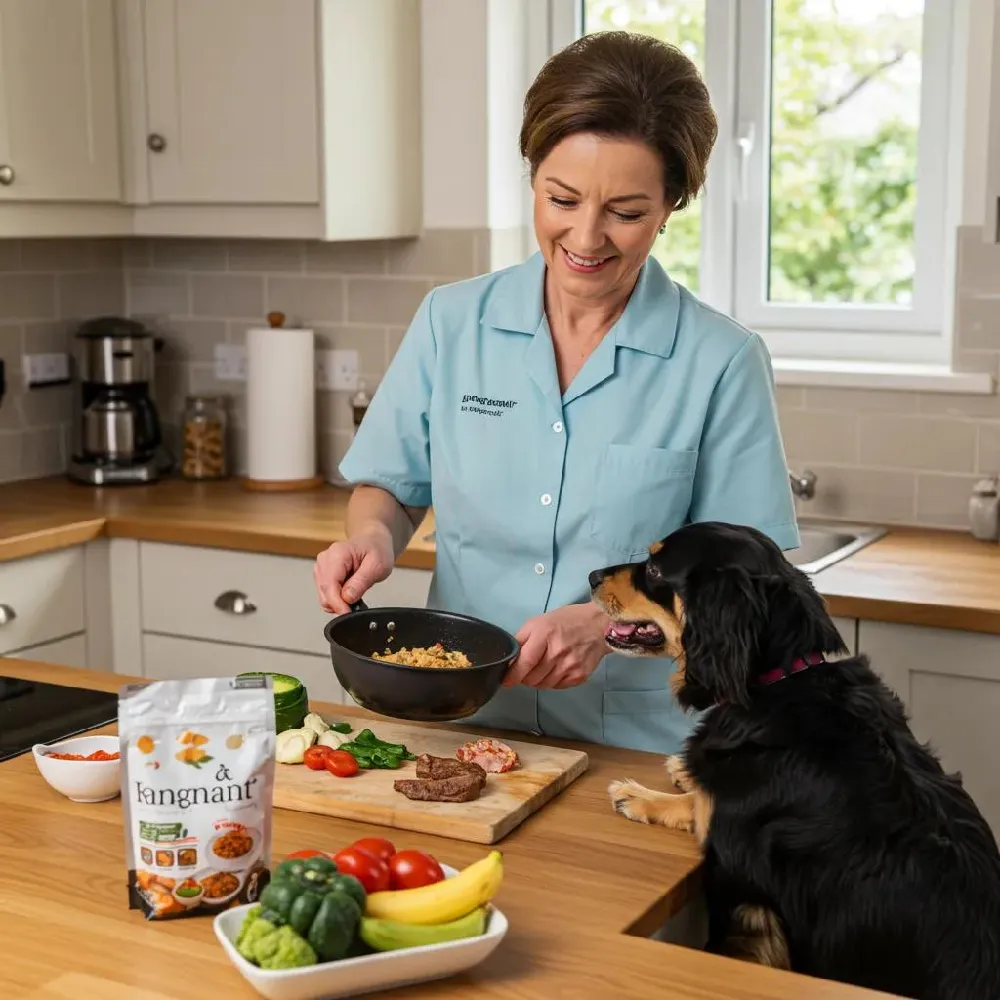
Home-based care offers nutrition, exercise, and socialization tailored to each dog’s unique needs. A caregiver can prepare special diets, administer medications at precise times, and adjust portion sizes based on veterinary recommendations. Behavioral specialists reinforce positive habits through dedicated training sessions, addressing leash manners, recall practice, or interactive play customized to energy levels. For instance, dogs with sensitive stomachs receive gentle meal transitions and close monitoring of appetite changes. This level of individualized support ensures physical and mental well-being beyond standard facility protocols.
How Does Maintaining a Dog’s Routine at Home Improve Their Well-Being?
Consistent feeding times, exercise schedules, and rest periods maintain hormonal balance and digestive regularity for dogs in home care. A predictable routine minimizes gastrointestinal upset, supports healthy weight management, and stabilizes energy fluctuations. Daily walks through familiar routes reinforce confidence and reduce reactive behaviors sparked by new environments. When medication deadlines align exactly with a dog’s established pattern, treatment efficacy improves and recovery times shorten. Keeping these routines intact strengthens trust between caregiver and dog, deepening emotional security.
What Health and Safety Advantages Does Home Dog Boarding Offer?
Home dog boarding limits exposure to pathogens, thanks to fewer animals introduced into a single environment. This reduces the risk of kennel cough, canine influenza, and other contagious conditions commonly transmitted in communal facilities. Secure home settings eliminate escape hazards and aggressive play incidents that can occur in group runs. A trained behavior specialist supervises all interactions, ensuring safe, positive socialization without the unpredictability of large playgroups. By safeguarding health and preventing injuries, home boarding cultivates peace of mind for pet owners and consistent vitality for dogs.
How Does Home Dog Boarding Provide Unexpected Comfort and Security for Dogs?
Home dog boarding mimics a dog’s own living space by offering private areas, familiar furnishings, and personal items that ease transitions during the owner’s absence. Caregivers create secluded rest zones with comfortable bedding and controlled noise levels, sidestepping kennel clatter and overcrowding. This arrangement promotes deep, restorative sleep and reduces hypervigilance common in open-plan facilities. Dogs feel protected in a space that resembles their everyday environment, which fosters confidence and resilience. The following subsections explain how environment, housing, and specialized supervision deliver these comforts.
Why Is a Home-Like Environment Better Than Traditional Kennels?
A home-like environment employs soft lighting, household background sounds, and personal belonging scents to cultivate psychological safety. Unlike bustling kennel corridors, a private living area lets dogs explore at their own pace, avoiding sudden alarms or group barking. The familiarity of couches, rugs, and toys triggers positive associations with family routines and human companionship. As stress hormones decline, dogs transition more readily into play and rest modes. This secure setting paves the way for enrichment options detailed in later sections.
How Do Individual Kennels Mimic a Dog’s Own Room for Comfort?
Individual kennels in a home boarding context function as a dog’s private suite, equipped with raised beds, climate control, and noise buffering. Each kennel becomes a den-like refuge, reducing territorial disputes and shielding dogs from startling sounds. Customizable layouts accommodate wheelchairs, ramps, or orthopedic mats for senior or special needs animals. By replicating the dog’s own sleeping quarters, these private suites enhance relaxation and support uninterrupted rest, which is essential before engaging in personalized activities and training.
How Does Expert Behavior Specialist Supervision Enhance Safety and Comfort?
Behavior specialists integrate insights from canine psychology to prevent anxiety-driven behaviors and ensure positive social experiences. They observe body language cues, adjusting interaction methods to each dog’s comfort level and past history. This expertise allows early intervention before stress escalates, using calming signals, positive reinforcement, and structured desensitization exercises. Dogs benefit from immediate, knowledgeable support rather than generalized oversight, building trust and reducing fear responses during boarding. This professional approach underlies the enrichment strategies explored below.
What Are the Advantages of Personalized Dog Care at Home You Might Not Know?
Home dog boarding extends beyond basic feeding and exercise by offering customization, enrichment, and specialized health support that many kennels cannot match. Caregivers craft day-to-day itineraries based on activity preferences, social comfort zones, and training goals. Customized play sessions can include scent work, puzzle-based feeding, or agility setups in secure backyard spaces. Spa treatments—such as gentle brushing, nail trims, and aromatherapy baths—can be scheduled to soothe arthritic or aging pets. This multi-faceted approach boosts mental stimulation, physical health, and emotional connection.
How Does One-on-One Attention Improve Dog Behavior and Happiness?
One-on-one interaction enables a caregiver to respond instantly to a dog’s stress signals and reinforce positive behaviors at the moment they occur. This prompt feedback accelerates learning of commands, curbs destructive responses, and fosters joy through play and praise. Dogs that receive individual attention exhibit stronger recall reliability, calmer social interactions, and reduced noise-triggered reactivity. For example, a dog with leash frustration learns bite inhibition faster in a low-distraction home environment where training can be repeated consistently. Such personalized focus heightens contentment and shapes lasting good behavior.
What Enrichment Activities Are Available in Home Dog Boarding?
Enrichment offerings include structured games, mental puzzles, and physical challenges adapted to each dog’s energy level. Caregivers can implement hide-and-seek treat hunts, interactive tug sessions, or gentle scent discrimination trials in home hallways and backyards. Advanced programs incorporate basic obedience drills, leash sports, and introductory agility to keep dogs engaged. Spa options—such as conditioning sprays and therapeutic brushing—support coat health and comfort. These tailored experiences cultivate cognitive engagement and overall well-being that align with each dog’s unique profile.
How Is Medication and Special Needs Care Managed in Home Settings?
Home boarding caregivers follow veterinarian-prescribed protocols to administer medications accurately, schedule vet teleconsultations, and monitor vital signs for dogs with chronic conditions. Special diets, supplement regimens, and mobility assistance receive the same meticulous attention as at home. Dogs with diabetes, epilepsy, or post-surgical needs benefit from continuous observation, allowing immediate response to fluctuations in glucose levels, seizures, or incision site changes. This comprehensive health support reduces complications and reinforces trust in a familiar setting.
How Does Home Dog Boarding Help Maintain Your Dog’s Routine and Reduce Anxiety?
Consistent feeding, exercise, social interaction, and rest are core elements of a dog’s daily life that support physical health and emotional balance. Home boarding maintains these elements without disruption, preventing cortisol surges associated with unpredictable schedules. By matching mealtime rituals, walk durations, and rest periods exactly to a dog’s accustomed pattern, caregivers help dogs manage separation stress and promote digestive comfort. Preserved routines serve as emotional anchors, reducing the likelihood of anxiety-driven behaviors when the owner returns.
Why Is Consistent Feeding and Exercise Important During Boarding?
Predictable meal and exercise times regulate digestive enzymes, blood sugar levels, and energy cycles. Consistent routines prevent gastrointestinal distress and maintain healthy body weight. Regular walks through familiar or similar routes provide mental stimulation and reinforce obedience cues, curbing boredom-related behaviors like chewing or digging. Dogs that follow their normal schedule display fewer pacing episodes, destructiveness, and vocal distress signals. Keeping these cycles intact ensures physical well-being and emotional steadiness.
How Does Home Boarding Support Dogs with Separation Anxiety?
Home boarding environments reduce triggers of separation anxiety by offering continuous presence of a caregiver who mimics owner routines. Gradual exposure to brief absences, paired with positive reinforcement and comforting items, desensitizes dogs to short-term partings. Behavior specialists employ counter-conditioning techniques, such as pairing caregiver arrival with high-value treats, to reshape emotional responses. Over time, dogs learn to associate absences with positive outcomes rather than fear, diminishing panic responses and destructive behaviors.
What Role Does Familiarity Play in Reducing Boarding-Related Anxiety?
Familiar smells, textures, and soundscapes evoke a sense of security that counters the stress of new surroundings. Integrating a dog’s own bedding, toys, and treat dispensers into the boarding environment accelerates comfort and trust. Audio playback of owner voices or household ambient sounds further anchors dogs to positive memories. This multi-sensory approach helps dogs adapt quickly, reducing the window of anxiety and supporting calm social interactions with caregiver and other pets.
What Unexpected Benefits Do Pet Owners Gain from Home Dog Boarding?
Pet parents enjoy direct visibility into their dog’s care, regular updates, and transparent communication that builds confidence. Many home providers offer daily photo or video reports, sharing insights into feeding, playtime, and rest patterns. Lower risk of illness exposure and professional supervision by behavior specialists bring added reassurance. Flexible scheduling accommodates last-minute travel changes, and caregivers often manage mail collection or plant watering as supplementary services. These conveniences and trust signals free owners from worry, letting them focus on their commitments.
How Does Home Dog Boarding Provide Peace of Mind for Pet Parents?
Daily check-ins via text, photo, or video allow owners to monitor appetite, mood, and activity, confirming their dog’s well-being in real time. Knowing a certified behavior specialist handles any behavioral or medical issues ensures swift resolution without owner intervention. Transparent reporting on routine adherence and social interactions fosters confidence. This open communication bridges the distance and reduces guilt, granting pet parents full assurance that their companion thrives while they are away.
Why Is Home Dog Boarding a Safer Choice for Your Dog’s Health?
Limiting contact to a single environment and caregiver dramatically decreases exposure to contagious pathogens common in communal kennels. Dogs avoid stress-related immune suppression triggered by high-density noise and constant animal turnover. Individual supervision prevents rough play and territorial conflicts, reducing injury risk. Behavior specialists monitor physical indicators such as lameness, coat condition, and appetite, enabling early intervention. By safeguarding health through controlled interactions and specialized oversight, home boarding creates a secure wellness bubble.
How Does Home Dog Boarding Support Owner Convenience and Trust?
Personalized scheduling flexibility allows owners to adjust drop-off and pick-up times without penalty or rigid slots. Coordinated payment plans and clear service agreements eliminate surprises. Caregivers often integrate light household support—plant watering, mail retrieval, or trash management—as supplementary services. Certification credentials, background screenings, and insurance coverage signal professional reliability. These conveniences and trust factors foster long-term relationships, positioning home boarding as a dependable extension of the owner’s care team.
How Does Casper’s Camp Hope Deliver Home-Like Benefits in a Professional Facility?
Casper’s Camp Hope bridges the gap between home dog boarding and kennel services by combining private, home-style suites with certified behavior specialist supervision. Individual air-conditioned kennels feature raised bedding, personal blankets, and familiar soundtracks to simulate a domestic environment. Daily routines mirror owner instructions for feeding, exercise, and rest. Behavior experts employ counter-conditioning, enrichment games, and positive reinforcement to replicate one-on-one attention typical of home care. This integrated model preserves the advantages of home boarding within a structured, professionally supervised facility.
How Do Individual Kennels at Casper’s Camp Hope Mimic a Home Environment?
Each kennel at Casper’s Camp Hope functions as a private suite, complete with soft lighting, noise buffering, and customizable bedding options. Dogs receive their own climate-controlled space furnished with household-style blankets and chew toys. Caregivers coordinate with owners to include familiar items—such as favorite bowls or absorbent pads—to reinforce comfort. This home-like atmosphere reduces territorial stress and encourages restful sleep, setting the stage for personalized enrichment activities.
What Role Do Certified Behavior Specialists Play in Enhancing Boarding Experience?
Behavior specialists at Casper’s Camp Hope assess each dog’s temperament and tailor interaction strategies to minimize anxiety. They lead training sessions that reinforce owner-provided cues, correct undesirable behaviors, and encourage positive social habits. By monitoring body language and vocalizations, they identify stress thresholds and apply calming protocols before issues escalate. Their expertise ensures that enrichment activities and social interactions remain safe, consistent, and enjoyable, preserving emotional balance throughout the stay.
How Does Casper’s Camp Hope Combine Personalized Care with Structured Routine?
Casper’s Camp Hope crafts individualized care plans that align feeding times, exercise sessions, and rest periods precisely with owner guidance. Structured group activities—such as supervised playgroups and interactive mealtime puzzles—complement private enrichment tasks. Behavior specialists log daily progress reports, detailing mood, appetite, and activity levels to maintain transparency. This combination of home-like personalization and routine discipline fosters both stability and stimulation, boosting dogs’ confidence and well-being.
How Does Home Dog Boarding Compare to Traditional Kennels and Pet Sitting?
Home dog boarding offers a middle ground between full-facility kennels and pet sitting by merging professional oversight with domestic familiarity. Unlike kennel boarding, it eliminates long rows of concrete runs and group feedings, replacing them with individualized attention and home routines. Compared to pet sitting in the owner’s home, dedicated boarding caregivers provide a controlled environment free from distractions like visitors or unfamiliar maintenance personnel. This environment balances rigorous supervision with personalized enrichment, making it ideal for dogs requiring both safety and emotional support.
What Are the Main Differences Between Home Dog Boarding and Kennel Boarding?
Home dog boarding centers on one-on-one care in a domestic setting, whereas kennel boarding places dogs in communal runs with scheduled group activities. The home model preserves routine and reduces cross-contamination of pathogens common in high-traffic facilities. Dogs enjoy private rest areas instead of shared caging, which limits aggression and noise stress. In contrast, kennel boarding relies on shift rotations and less frequent individual monitoring, potentially heightening anxiety and overnight isolation.
How Does Home Dog Boarding Differ from In-Home Pet Sitting Services?
While in-home pet sitting occurs in a dog’s own residence, it can be subject to unpredictable variables such as doorstep deliveries, household maintenance, or community noises. Home dog boarding in a dedicated caregiver’s environment controls these variables, ensuring consistency in interactions and setting. Boarding caregivers specialize in extended stays, offering structured routines, social enrichment, and behavior expertise that casual pet sitters may not provide. This controlled, home-like environment optimizes safety and emotional support.
Why Is Home Dog Boarding Often the Best Choice for Anxious or Special Needs Dogs?
Dogs with separation anxiety, medical conditions, or reactive behaviors thrive under continuous professional supervision and predictable routines. Home dog boarding environments minimize triggers—loud noises, strange faces, cage confinement—while providing tailored counter-conditioning and medication administration. Behavior specialists adjust enrichment and socialization to each dog’s tolerance, preventing stress spikes. This bespoke approach reduces the likelihood of panic episodes, self-injury, or regression and accelerates progress in behavior modification.
Your dog’s comfort, health, and happiness deserve a personalized solution that surpasses traditional boarding. By choosing home dog boarding or a home-like facility model such as Casper’s Camp Hope, you ensure familiar routines, individualized care, and expert oversight converge to create a stress-free stay. Explore how this approach can elevate your dog’s well-being and deliver lasting peace of mind. Contact a certified behavior specialist to design a boarding experience tailored to your dog’s unique needs.
